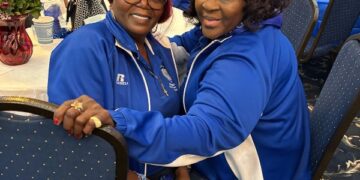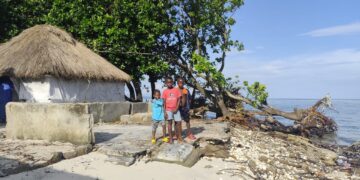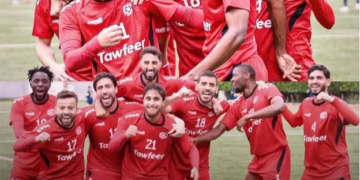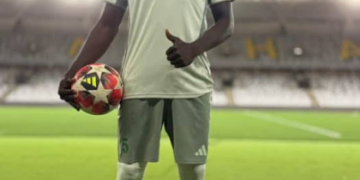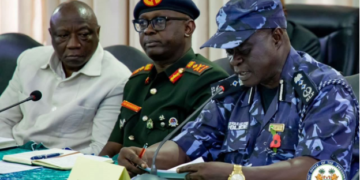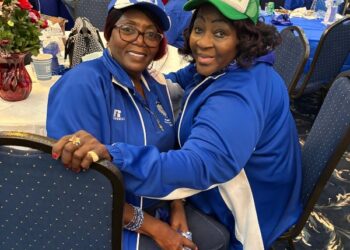By Alieu Amara Suwu
L.A.W.Y.E.R.S., in their advocacy to broaden the awareness of law students and legal practitioners on the concepts of sexual and gender-based violence (SGBV) and the Gender Equality and Women’s Empowerment Act (GEWE), held a two-day training for the said persons/participants on the 29 and 30 of October 2024 at the New Brookfields Hotel in Freetown.
The two days of training eroded the then perceptions of the participants about gender, feminism, SGBV, and the GEWE Act after well-composed and enriched topics had been elaborately explained by various presenters and facilitators.

Gender-based discrimination is prohibited under almost every human rights treaty. Despite much progress made in securing women’s rights globally, millions of women and girls continue to experience discrimination and violence, being denied their equality, dignity, autonomy, and even a life. Thus, L.A.W.Y.E.R.S. has taken upon themselves to let legal practitioners and students know the issues of gender violence and the remedies provided for it.
Juliet Kaikai, head of ADVOCAID, said in her presentation on the topic, Concept of Gender and Feminist Strategic Litigation, that gender spectrum is the idea that one has many gender identities other than identifying as a man or as a woman; non-binary, an umbrella term for individuals who are identified outside of the conventional gender binary; and spectrum, a person who is identified by the gender they were ascribed at birth. She explained that, around the world, people have been under constant duress to conform to the traditional gender identities since the beginning of time. According to her, body shaming, rape, feticide, sexual harassment, honour killing, trafficking for sex work, slut shaming, and forced pregnancy are examples of sexual and gender-based violence.

On feminist lawyering, she said it recognizes that gender inadequacies are deeply embedded in various aspects of society, including politics, economy, education, and the legal system. She asserted that it strives to promote a male inclusive, equitable, and just world by addressing not only overt discrimination but also the subtle, often unconscious biases that perpetuate gender disparities. She therefore said Africa feminism has emerged from the unique social, cultural, and historical contexts of the continent, which seeks to challenge and dismantle systems of oppression that have marginalized women and gender non-conforming individuals in Africa for centuries.
On strategic litigation, she said the overall end goal is to change by addressing systemic violations and failures within the law.
“Litigation that is strategic is rooted in a conscious process of working through advocacy objectives and the means to accomplish them, of which litigation is often but one,” she explained.
Moreover, she submitted that the goals of strategic litigation are developing progressive standards, testing the bounds of procedural and evidential barriers to litigation, alternating and bettering remedies and pressuring the state to act, and setting precedent for future claimants.
Dr. Suad Kamara, who works at Rainbow Initiative, spoke on the GEWE Act, stating that it is an act that addresses gender imbalances by making provisions for increased appointment of women to decision-making positions and structures so as to achieve at least 30% representation, to provide for the promotion of gender equality in employment and training, and to provide for the implementation of gender mainstreaming.
In her submission, she clearly said gender equality is intrinsically linked to sustainable development and is vital to the realization of human rights for all; the overall objective of gender equality is a society in which women and men enjoy the same opportunities, rights, and obligations in all spheres of life.
She said equality between men and women exists when both sexes are able to share equally in the distribution of power and influence; have equal opportunities for financial independence through work or through setting up businesses; enjoy equal access to education and the opportunity to develop personal ambitions, interests, and talents; share responsibility for the home and children; and are completely free from coercion, intimidation, and gender-based violence both at work and at home.
She noted that discrimination and violence against women and girls, deeply rooted in the fabric of societies, is persistent and systematic. She added that in recent years, there has been a recurrence of skepticism against and denial of international standards concerning women’s human rights, gender equality, and gender-based violence, while women and girls are increasingly raising voices to demand equality, including through feminist movements.
Rebecca J. Kallih made her submission of the medical findings, survivors medical certificate, and reporting medical findings in court.
The training climaxed with an interactive session wherein participants commented, contributed, and asked a wide range of questions.


